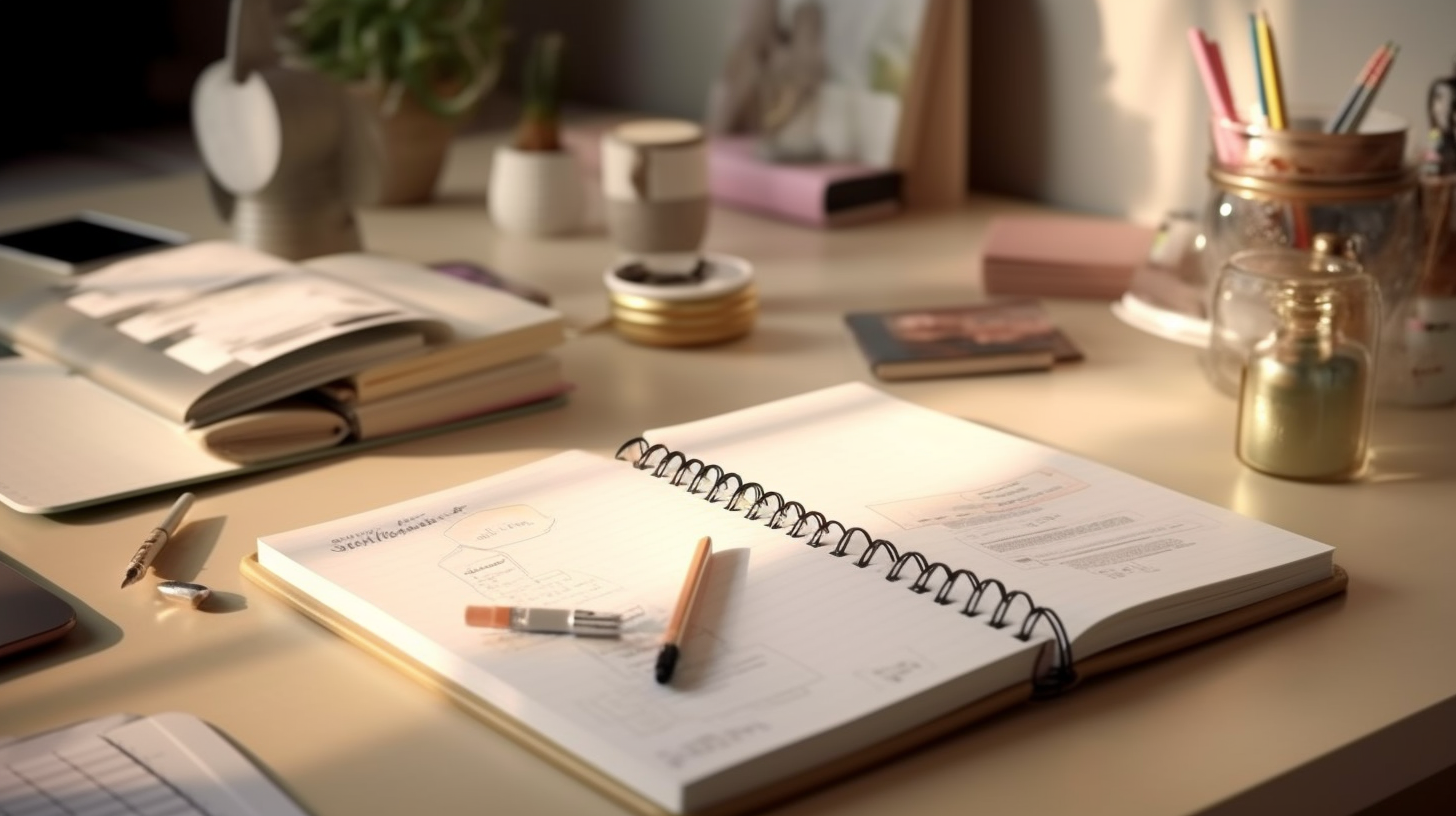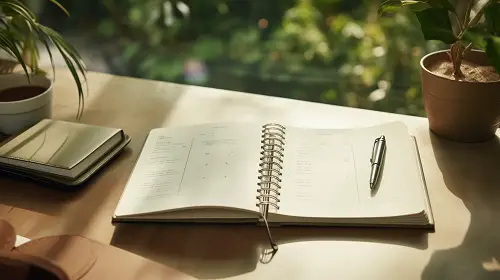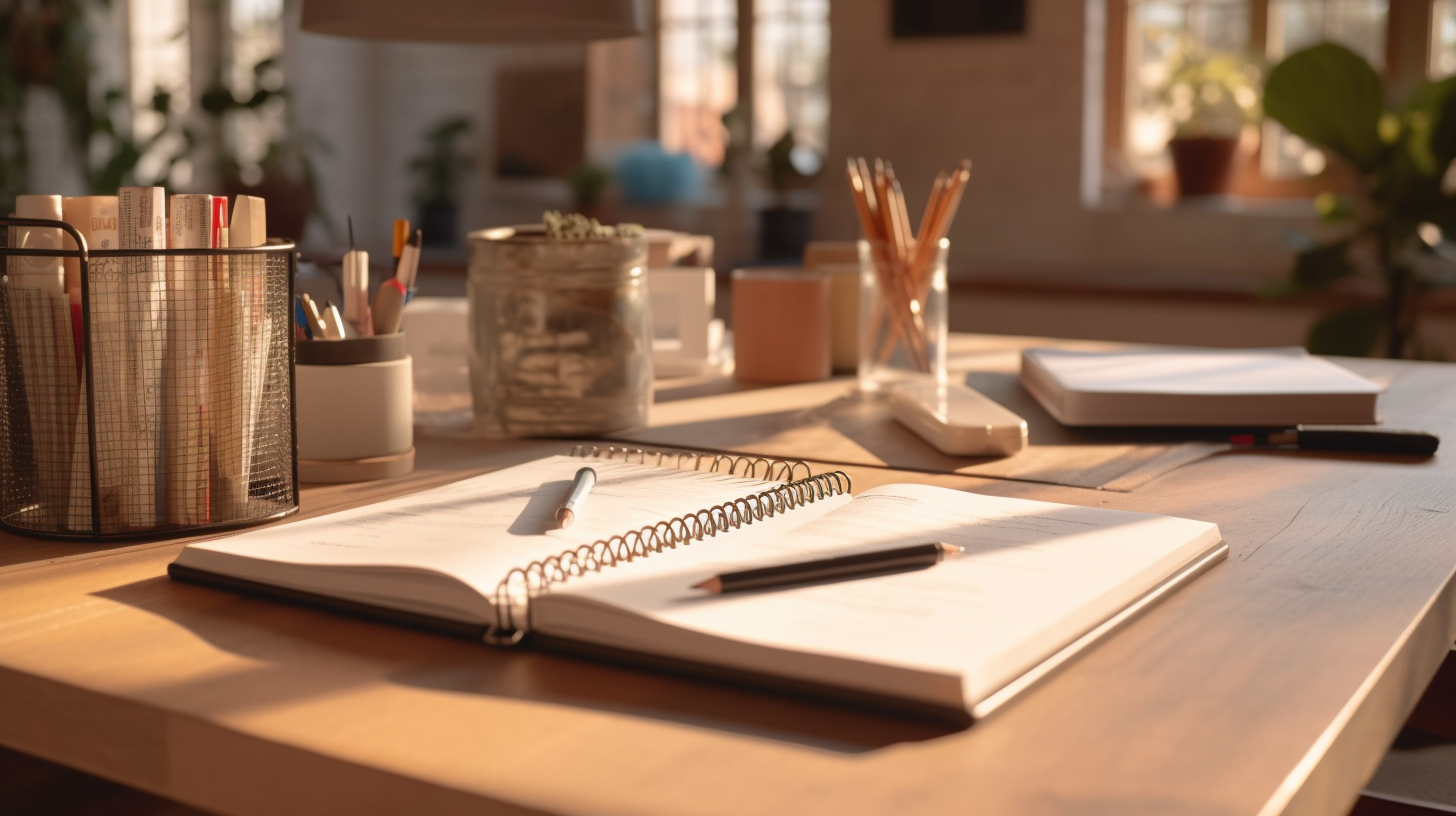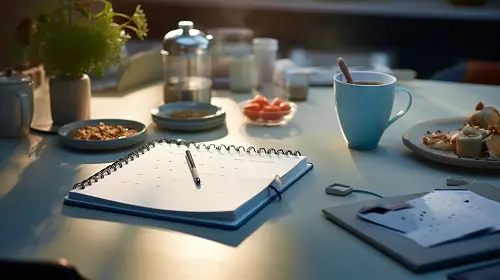|
Outline |
|
1. Introduction |
|
2. What is a Planner? |
|
2.1 Benefits of Using a Planner |
|
2.2 Types of Planners |
|
3. How to Choose the Right Planner |
|
3.1 Consider Your Needs |
|
3.2 Evaluate Features |
|
3.3 Set a Budget |
|
4. Organizing Your Life with a Planner |
|
4.1 Daily Planning |
|
4.2 Goal Setting |
|
4.3 Time Management |
|
4.4 Habit Tracking |
|
5. Boosting Productivity with a Planner |
|
5.1 Prioritization |
|
5.2 Task Management |
|
5.3 Creating Routines |
|
6. Digital Use of Planners |
|
6.1 Benefits of Digital Planners |
|
6.2 Popular Digital Planner Apps |
|
7. Incorporating Mindfulness |
|
8. Finding Planner Inspiration |
|
8.1 Bullet Journaling |
|
8.2 Planner Communities |
|
9. Conclusion |
|
10. FAQs |
Table 2: Article – Use of Planners
Use of Planners: Organize Your Life and Boost Productivity
Introduction
In today’s fast-paced world, staying organized and managing our time efficiently has become increasingly important. With numerous tasks, deadlines, and responsibilities, it can be challenging to keep track of everything. This is where planners come to our rescue. A planner is a versatile tool that helps individuals stay organized, prioritize tasks, and achieve their goals. In this article, we will explore the benefits of using planners, discuss how to choose the right one, and explore various ways to integrate them into your daily life.
What is a Planner?
A planner is a physical or digital tool designed to assist individuals in organizing their schedules, tasks, and personal goals. It provides a structured framework to plan, prioritize, and track progress. Planners are available in different formats, ranging from traditional paper-based versions to innovative digital applications. They serve as a central hub to store appointments, to-do lists, and important reminders.
Benefits of Using a Planner
Using a planner offers several advantages, including:
- Improved Organization: A planner provides a systematic approach to manage your time and tasks effectively. It helps you stay on top of your commitments and ensures that nothing falls through the cracks.
- Enhanced Productivity: By mapping out your day and setting clear goals, a planner helps you stay focused and increases your productivity. It allows you to allocate time for important tasks and eliminates procrastination.
- Reduced Stress: With a planner, you can declutter your mind by transferring your thoughts and plans onto paper or a digital interface. This reduces mental overload and helps you approach tasks with a calmer mindset.
- Goal Achievement: Planners enable you to set long-term goals and break them down into actionable steps. By tracking your progress, you can stay motivated and celebrate milestones along the way.
- Improved Time Management: By allocating time slots for specific activities and appointments, a planner helps you make the most of your day. It prevents time wastage and encourages effective time utilization.
Types of Planners
Planners come in various formats, each catering to different organizational preferences and lifestyles. Some popular types of planners include:
Daily planners provide a detailed overview of your day, allowing you to plan tasks, appointments, and events hour by hour. They are ideal for individuals with packed schedules or those who prefer a more granular approach to planning.
Weekly planners offer a broader view of your week, allowing you to plan and allocate tasks on a weekly basis. They provide a balance between detailed planning and a broader perspective of upcoming commitments.
Monthly planners give you an overview of the entire month, allowing you to set goals, track important events, and plan ahead. They are useful for long-term planning and ensuring you don’t miss any significant deadlines or milestones.
Digital planners have gained popularity in recent years due to their convenience and flexibility. They offer the advantages of traditional planners while providing additional features such as reminders, syncing across devices, and the ability to set notifications.
How to Choose the Right Planner
When selecting a planner that suits your needs, consider the following factors:
Consider Your Needs
Identify what you primarily need a planner for. Do you require a detailed daily breakdown, or do you prefer a broader overview? Consider whether you need space for notes, goal tracking, or habit formation.
Evaluate Features
Different planners offer various features such as goal-setting sections, habit trackers, and additional note-taking pages. Assess the features that align with your requirements and preferences.
Set a Budget
Planners are available at various price points. Determine your budget and explore options within that range. Remember, the costlier options may offer additional features or premium materials.
Organizing Your Life with a Planner
A planner serves as a powerful tool to help you organize various aspects of your life. Let’s explore how you can maximize its benefits:
Daily Planning
Start your day by reviewing your planner. Note down tasks, appointments, and deadlines for the day. Prioritize tasks and allocate time slots to ensure efficient time management.
Goal Setting
Use your planner to set long-term goals and break them down into smaller, achievable milestones. Create action plans and assign deadlines to keep yourself accountable.
Time Management
Utilize your planner to allocate time for different activities. Prioritize important tasks, and avoid overloading your schedule. Be mindful of time blocks and aim for a balanced distribution of work and leisure.
Habit Tracking
Planners often provide habit tracking sections. Utilize these to monitor and develop positive habits. Regularly review your progress and make adjustments as needed.
Boosting Productivity with a Planner
Planners play a vital role in enhancing productivity. Here are some strategies to boost your efficiency:
Prioritization
Identify your most important tasks and prioritize them. Use your planner to allocate dedicated time slots for high-priority activities, ensuring they receive sufficient attention.
Task Management
Break down complex tasks into smaller, manageable steps. Use your planner to create task lists and track your progress. Celebrate completed tasks to stay motivated.
Creating Routines
Establishing consistent routines can help streamline your workflow. Use your planner to schedule regular activities, such as exercise, meal planning, or self-care. Routines eliminate decision fatigue and provide structure.
Digital Use of Planners
Digital planners offer unique advantages over their paper counterparts. Let’s explore why they are gaining popularity:
Benefits of Digital Planners
Digital planners provide features such as automatic syncing, reminders, and seamless integration with other digital tools. They offer flexibility, accessibility, and the ability to back up your data securely.
Popular Digital Planner Apps
Several digital planner apps cater to different needs. Some popular options include Notion, Evernote, Trello, and Google Calendar. Explore these apps to find the one that suits your preferences.
Incorporating Mindfulness
Planners can serve as a gateway to practicing mindfulness. Use your planner not only for planning and organizing but also as a space for reflection, gratitude, and self-care. Incorporate mindfulness techniques such as journaling, affirmations, or visualization exercises.
Finding Planner Inspiration
If you’re seeking creative ideas or motivation to make the most of your planner, consider the following avenues:
Bullet Journaling
Bullet journaling combines planning and creativity. It involves customizing your planner with different layouts, trackers, and artistic elements. Explore bullet journaling communities and online resources for inspiration.
Planner Communities
Engage with planner communities online or offline. Social media platforms like Instagram and Pinterest host numerous communities dedicated to planners. Joining these communities can provide inspiration, tips, and a sense of belonging.
Conclusion
Planners are powerful tools that enable individuals to stay organized, manage time efficiently, and achieve their goals. Whether you prefer a traditional paper planner or a digital app, finding the right planner for your needs can greatly enhance your productivity and overall well-being. By incorporating planning techniques, goal setting, and mindful practices into your daily routine, you can take control of your life and accomplish more.
FAQs about Use of Planners:
- Can I use a planner for both personal and professional purposes?
Absolutely! Planners are versatile tools that can be used for organizing both personal and professional aspects of your life. They help you maintain a holistic approach to managing your time and tasks.
- How often should I update my planner?
It’s recommended to update your planner daily or at the beginning of each week. Regularly reviewing and updating your planner ensures that it remains up to date and reflects your current priorities.
- Can I use a digital planner on multiple devices?
Yes, most digital planners offer syncing capabilities, allowing you to access and update your planner across multiple devices such as smartphones, tablets, and computers.
- Are there specific planners for students?
Yes, there are planners specifically designed for students. These planners often include sections for class schedules, assignment tracking, and exam dates to help students stay organized throughout the academic year.
- How can I make my planner more visually appealing?
You can personalize your planner by using colorful pens, stickers, washi tape, or incorporating hand-drawn elements. Experiment with different layouts and designs to make your planner a reflection of your personality and style.




